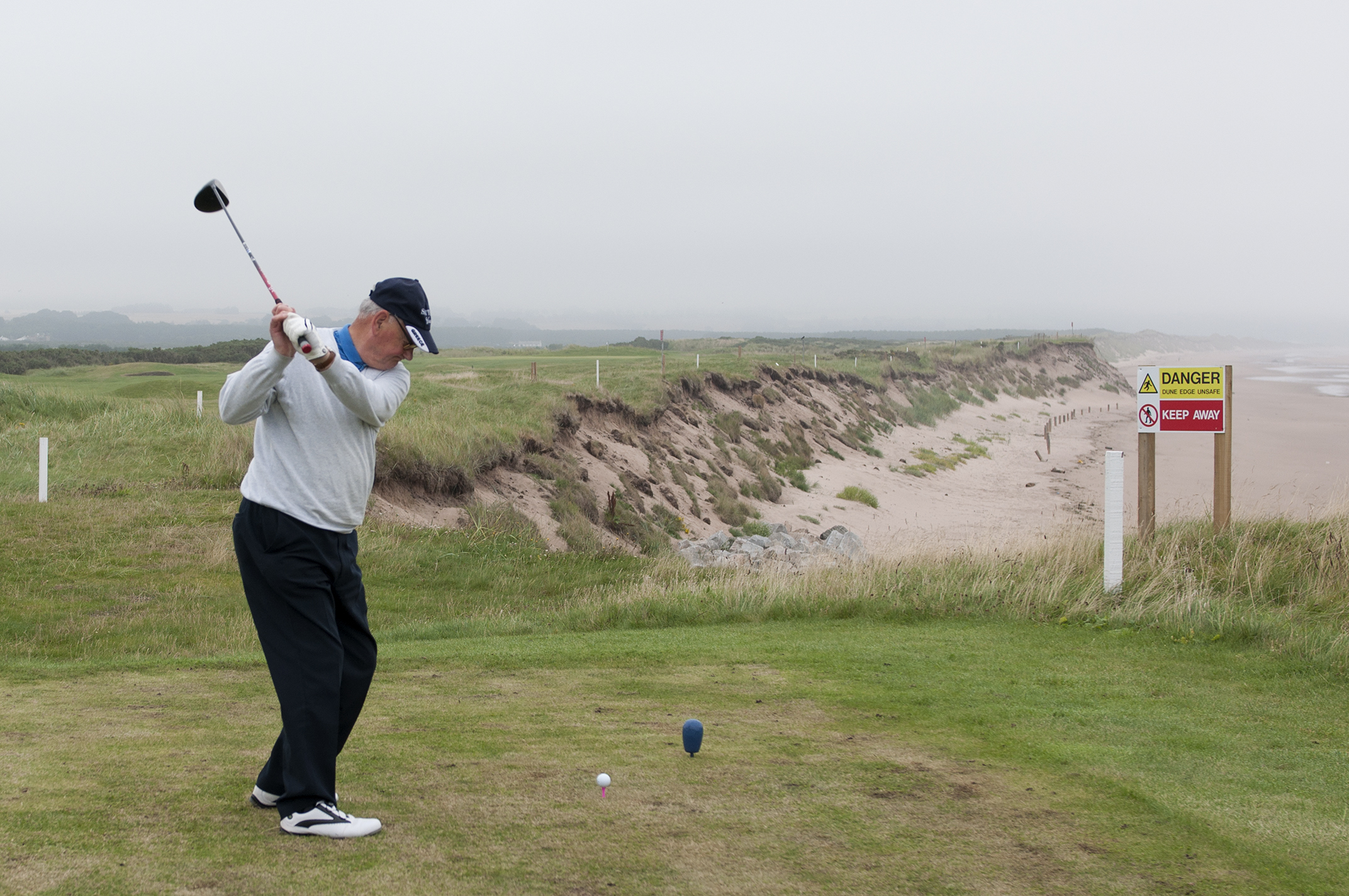
WETTER winters and coastal erosion linked to climate change are threatening the future of golf, a report backed by the sport’s UK governing body has warned.
Golf is facing an increase in unplayable holes, winter course closures and disruption to professional tournaments due to increased rainfall, while rising sea levels could jeopardise all the world’s coastal courses by 2100.
Cricket is also facing “disruption at every level” of the game as a result of wetter winters and more intense summer downpours driven by climate change, the report from the Climate Coalition said.
UK football is also affected, particularly at grassroots level, by adverse weather, while the Scottish skiing industry could collapse within 50 years as winters become too mild for regular snowfall.
Extreme weather is made worse by climate change, causing more golf course closures, while wetter, warmer autumns and winters cause damage and disease to grass and greens, the report said.
In the Greater Glasgow area alone there was a 20% reduction in playing time on golf courses in 2016/2017 compared with 2006/2007.
And one in six Scottish golf courses are on the coast, where they are at risk of erosion due to rising sea levels, caused by melting glaciers and oceans expanding as they warm, and more intense storms.
Montrose Golf Links, one of the oldest courses in the world, has seen the North Sea advance 70 metres towards the course in the last 30 years, forcing some holes to be realigned and some abandoned.
Steve Isaac, director of golf course management at the R&A, said: “There is no question it is becoming a huge factor.
“I believe golf is more impacted by climate change than any other sport aside from skiing.
“We are feeling it now with increases in unplayable holes, winter course closures and disruption to professional tournaments.
“And the future threats are very real.”
Professor Piers Forster, director of the Priestley International Centre for Climate at the University of Leeds, said the UK had seen six of the seven wettest years on record since 2000 and record-breaking wet winters in 2014 and 2015.
“That, combined with rising sea levels and increased storm surges, means that climate change is already affecting the historic game of golf in its birthplace.
“Without cutting the carbon emissions driving climate change, sea levels will rise by over a metre and extremely wet winters will become the norm,” he warned.
“Many aspects of our lives including the game of golf would struggle to adapt to such a changed world.”
The report also warns that more than a quarter of England’s home One Day Internationals (27%) have been played with reduced overs since 2000 due to rain interruptions, and the rate of rain-affected matches has doubled since 2011.
Bad weather cost the England and Wales Cricket Board £1 million in emergency grants during 2016 and 2017.
The Premier League and Sport England made £750,000 available to support football clubs affected by flooding in 2015/2016, while longer term the Football Association will invest £48 million in hundreds of new all-weather and specially adapted turf pitches across the country.
The impact on football is particularly acute at grassroots level, where the average club is losing five weeks every year to bad weather, the report said.
The Climate Coalition, which is made up of groups ranging from the National Trust and the Women’s Institute to WWF, the RSPB, Greenpeace and Oxfam, is releasing the report as part of its Show The Love campaign, which celebrates things people love but that could be lost due to climate change.

Enjoy the convenience of having The Sunday Post delivered as a digital ePaper straight to your smartphone, tablet or computer.
Subscribe for only £5.49 a month and enjoy all the benefits of the printed paper as a digital replica.
Subscribe